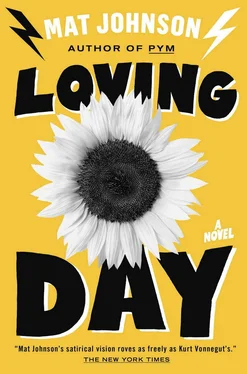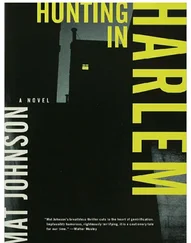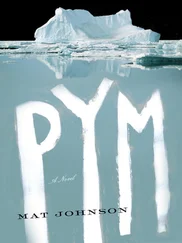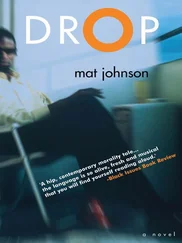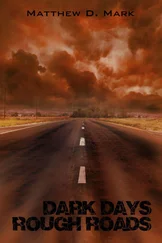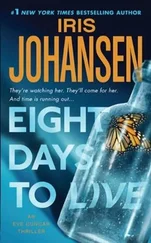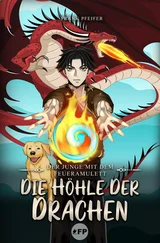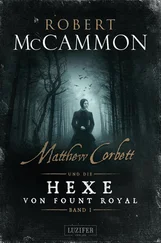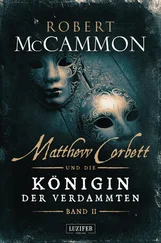I slam the laptop shut, curse.
Tal looks over at me, sees my face. “What?” she asks.
“My friend. Is acting like a lunatic.” I get up, head to the kitchen. There’s no alcohol in the house because of my daughter, so I settle for putting a pot of coffee on instead.
“That wasn’t Sunita, right? Everything’s cool with her, right?”
“Yeah,” I say. Though I don’t catch the transition.
“I mean, I haven’t even seen you guys talk lately. I thought you were into her?”
“We’re just friends,” I tell her, but at the moment even this sounds like a stretch.
“I’m not a baby. I’m not clueless. You think I’m like some little kid but—”
My phone thankfully rings before we can take the conversation further. Tosha’s face flashes on the screen and then her voice is in my ear.
“I’m sorry. He was here and I know from the GPS that the bitch was at his apartment, and he had the nerve to deny it. I got mad. And, just to see the look on his face, I said you were coming over, later tonight. I’m sorry.”
“I understand,” is all I say, because Tal is interested now, trying to look at my screen.
“Thanks for getting my back.”
“I got your back,” I tell her. George might have my ass, but I have her back.
“Good. So let me get your back: that biracial thing is a bunch of brown-bag divisive bullshit and you know it. That shit is dangerous and it’s brainwashing and you can’t get sucked into that. Or let your daughter get sucked into it either. I know you’re beige, but stay black.”
“I will,” I tell her, because I just want to escape.
“Loving versus the state of my ass,” Tosha says before hanging up.
—
I’m standing in front of a statue of an Indian, big as two men. He kneels down, hand over his eyes to block the sun, staring through the trees, down at the white people jogging across the Wissahickon on Forbidden Drive.
“He’s looking west,” Spider tells the kids, all gathered around with their notepads and charcoals, looking up at him and the statue, trying to figure out which one to pay attention to. “He’s supposed to be looking for the Lenape who once lived here, the ones pushed farther inland when the Europeans invaded.”
“Look at the angles of his arms, legs. Try to capture the angles. Even if it’s just stick figures, focus on the lines. Check out the lines on his headdress, all those straight feathers,” I say, because I’m supposed to be team teaching, and I have to say something. I look up at his massive thighs, and I think of Sun’s thighs shaking as she rose to get away from me that weekend. I think of the dimples of the cellulite that were so much more real and beautiful than this statue’s spotless hard quadriceps. That really happened. Sunita Habersham does speak to me, passes me without saying anything, but it still really happened. Shazam . Those little details, like that red fuzz ball of lint hanging from her hair, bouncing when I was behind her, they tell me that really happened.
“That warbonnet? Completely historically inaccurate. That’s ceremonial headgear for the Plains Indians, like the Cheyenne. The Lenape wore a sort of turban.”
The kids look up at Spider, then at me. I shrug. So the ones who did the headdress start tugging at their pictures with their erasers.
“She got in your head, didn’t she?”
I don’t know how well Spider knows Sun. I don’t know if they’re best friends, or lovers, or just two people who occasionally get high together.
“Dude, it’s obvious. Since your ghost hunt, both you guys been walking around like you did see something.”
“You guys ever hook up?” I just ask him. I would never ask anyone else this, but I ask Spider. He’s too open not to reach in. To not would almost be rude.
“Oh no. I like my ladies tall. I mean real big. You know what I mean?” I have no idea what he means. Sun is at least five ten. “Statuesque,” Spider adds, and one hand goes up, and one hand goes out, and it doesn’t make a damn bit of sense. The guy’s barely five feet, almost all women must be tall to him. But he winks and there really is no possible negative response to a wink, so I say, “A’ight, a’ight,” which is a great Philly way of agreeing without saying anything.
“Well, you need any advice on the woman thing, hit me up,” Spider tells me.
“Okay. Well, thanks,” I say in a sincere yet apparently unconvincing way.
“No really, dude. I know women. I used to be one, in a past life.”
“In a past life?” I look over at Spider to see his joking smile. It ain’t there. This little guy, lined with muscles and little ball naps forming a beard across his jawbone, he’s definitely a man. Specifically, a madman. He berates the class playfully and they hurry. All these little mixie pixies, up and up, through the trees to Mulattopia. He’s so good with them, this carny. Spider even knows the kids’ names. He calls out to them like Santa addressing his reindeer. I can reliably recall one name, Kimet’s, and that’s solely because he’s dating my daughter. Still, I say his name when he walks by. He nods and smiles and is suitably nervous, befitting of a boy being investigated by a girl’s father for signs of normative teenage heterosexual male behavior.
“Let me see your sketch.” It comes out sounding like I’m a soldier demanding documents. The boy stops walking, reaches for his satchel. It’s got a National Organization for Women patch on it. Just to throw me off.
“Kinda needed more time, if you could—” he tries to tell me, but I interrupt him with a grunt. Kimet stares at my face. I stare back. So he starts pulling out the sketch. The other kids are passing us now. Some stop, want to see, I shoo them on. Kimet holds his image to his chest until we’re clear again.
“I don’t think—” he protests, but I quickly get a hand on his paper and he releases it because he doesn’t want it to tear. I start hiking again as I inspect it, and he follows.
It’s good. Structurally, anatomically, the sketch is informed, skillfully rendered. Even the perspective he’s chosen: from the side, completely imagined because we did not get a clear view of the statue from that vantage. And of course, our statue was kneeling, peering into the expanse, not leaning forward as he sat defecating on a large stone toilet, as Kimet depicts.
But the subject is not the wrong-hatted Lenape. It’s me. He even has my jeans in a pile at the bottom of my hairy legs.
I look up at Kimet. Teenagers, they feel everything so distinctly, desire, hatred, and right now I hope, fear. My laughter bursts; I don’t even mean to, it just erupts when I attempt to maintain severity. I find other people’s fears so amusing; I might even enjoy the absurdities of my own if they weren’t petrifying.
“I’m really glad you captured the cut muscularity of my ass.”
“Shit” comes out of Kimet’s mouth. It’s not directed to or at me though, but to the small crowd up by the Mélange Center’s front gate. The door is closed, the metal mesh sealed up, which it never is this time of day. In front of it now loiters our entire art class, two police cars, Roslyn, and Principal Kamau of the Umoja School. Kimet’s father.
“You forget you had to leave early?” I ask, but when I look over Kimet’s already turned around, walking back down the trail again. I call to him, but he ignores me, and it takes a couple of quick hops to catch him.
“Sorry, I can’t. I’m not going.” He tries to pull away, but I have too much of a lock on his elbow for him to do it politely.
“You afraid of going to the dentist or something?”
“My mom sent me here, not him. He’s not even supposed to be here. You know, the divorce.”
Читать дальше
